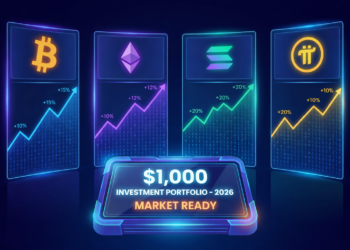Navigating the stock market can feel like steering a ship through a storm, and a market order is your compass guiding the way.
In simple terms, a market order is a request you, as an investor, place with your broker to buy or sell a security at the best available price in the current market.
It’s one of the most basic, yet important tools you have in your trading arsenal, especially when working with a white label forex broker.
But what makes it so vital? And could there be potential downsides that you need to be aware of?
Stick around and you’ll soon find out.
Understanding the Market Order Concept
Let’s dive into the concept of a market order, a crucial tool you’ll use in your trading journey. Essentially, a market order is an order to buy or sell a security at the best available price in the current market. It’s immediate and prioritized over other order types. Sounds pretty straightforward, right?
However, it’s vital to understand the associated market order risks and the importance of order execution speed.
First, let’s talk about market order risks. While market orders tend to be filled quickly, there’s no guarantee of the execution price. If the market is volatile, the price you end up paying or receiving might be substantially different from the last traded price. This is known as slippage and it can potentially lead to substantial losses.
Next, consider order execution speed. The quicker your order is executed, the less likely you’re to experience slippage. But remember, speed also depends on market conditions. During peak trading hours, you might encounter delays which can impact your trading strategy.
In a nutshell, while market orders can be handy for their immediacy, it’s crucial to weigh the risks and understand how order execution speed can affect your trading outcomes.
Functioning of Market Orders
Understanding how market orders function is essential, as it directly influences the success of your trading strategies. It’s not just about placing orders and hoping for profit; you need to understand the nuances and mechanics involved.
- Order Execution Speed: This refers to how quickly your market order is fulfilled. In a fast-paced and volatile market environment, speed is your ally. The quicker your order is executed, the better chance you have of securing the desired price.
- Remember, market orders are usually executed instantly during market hours, unless there’s a lack of liquidity.
- However, keep an eye on the market’s volatility as it can impact your order execution speed.
- Market Volatility Impact: Market volatility significantly affects your market orders.
- In periods of high volatility, the price at which your order is executed may differ from when you placed your order. This is known as slippage.
- It’s important to factor in volatility when planning your trading strategies, as it can make or break your profits.
Advantages of Using Market Orders
While taking into account the speed of order execution and the impact of market volatility, it’s also crucial to recognize the advantages that come with using market orders.
Firstly, market orders are renowned for their speed efficiency. When you place a market order, it gets executed immediately at the current market price. This is particularly beneficial in fast-paced trading environments where price movements are rapid and frequent.
Secondly, there are also cost considerations to bear in mind. Market orders can be less expensive than limit orders. Since they’re filled immediately, you’re less likely to incur extra costs associated with maintaining an open order over a longer duration.
To summarize, here’s a simple table to illustrate these points:
| Advantages of Market Orders | Description | Example |
|---|---|---|
| Speed Efficiency | Market orders are executed immediately at the current market price | Ideal for fast-paced trading environments |
| Cost Considerations | Market orders can be less costly than limit orders | No extra costs incurred from maintaining an open order |
Potential Drawbacks of Market Orders
Despite their benefits, market orders also carry potential drawbacks that you need to consider carefully.
The most significant of these involve uncontrolled execution and the slippage risk.
- Uncontrolled Execution: With market orders, you don’t have control over the price at which your trade executes. When you place a market order, you’re essentially saying, ‘I’ll buy or sell this at any price.’ Consequently, you could end up buying at a higher price or selling at a lower one than you anticipated.
For example, you place a market order to buy a stock that’s currently priced at $100. However, the market is moving quickly, and by the time your order executes, the price could have jumped to $105. That’s uncontrolled execution.
- Slippage Risk: This is closely tied to uncontrolled execution. Slippage occurs when the execution price of a trade differs from the expected price, often due to market volatility. It’s particularly prevalent in fast-moving markets where prices can change rapidly.
For instance, you place a market order to sell a stock at $50. Due to market volatility, your order gets filled at $48. This $2 difference is slippage risk.
Practical Examples of Market Orders

To grasp how market orders function in real-world trading, let’s delve into some practical examples. Consider you’ve decided to buy shares of a company that’s currently trading at $20. You place a market order, prioritizing order execution speed over the exact price. The order gets executed nearly instantaneously, but due to market volatility impact, you might end up paying slightly more or less than $20.
Similarly, if you own shares of a company trading at $30 and want to sell them quickly, a market order ensures speedy execution. However, market volatility might cause you to receive a bit less than the current trading price.
Here are some examples in a tabular form to help you understand better:
| Situation | Market Order Type | Result |
|---|---|---|
| Company A shares are trading at $20. You place a market order to buy. | Buy | You acquire the shares almost instantly, but price might be slightly different due to market volatility. |
| You own shares of Company B trading at $30. You place a market order to sell. | Sell | Your shares are sold almost instantly, but you might receive slightly less due to market volatility. |
These examples illustrate how market orders provide speed but can be influenced by market volatility.
Frequently Asked Questions
How Does the Market Order Differ From Other Types of Stock Orders?
Market orders differ from other stock orders in their priority. They’re executed immediately at the best available price, unlike limit orders. However, they’re subject to market volatility, which can affect the final transaction price.
Can a Market Order Be Cancelled or Modified Once It Has Been Placed?
Once you’ve placed a market order, you can’t cancel or modify it due to order timing and market volatility. It’s processed immediately at the best available price, leaving no room for changes.
How Does the Execution of Market Orders Impact the Liquidity of a Stock?
When you execute a market order, it impacts a stock’s liquidity. Order timing and price fluctuations play a critical role. More market orders can increase liquidity, but rapid, large orders might cause temporary price swings.
What Is the Role of a Broker in Processing a Market Order?
As a broker, you process market orders by routing them to the exchange. You’ll receive a broker’s commission for this service. Your role ensures trades are executed efficiently and at the best available price.
Are There Any Specific Circumstances Under Which a Market Order Should Not Be Used?
You shouldn’t use a market order when the market’s volatile. Market order risks increase due to rapid price changes. Order timing’s important; you might buy or sell at a price far from your target.
Conclusion
So, you’ve got the scoop on market orders. They’re immediate orders you place at the current market price. They’re super handy when speed is your priority. But remember, they’re not without risks, as market conditions can quickly change.
Think of them like a tool in your trading toolkit, best used when the situation is right. As always, understanding your options can make all the difference in your trading game.











